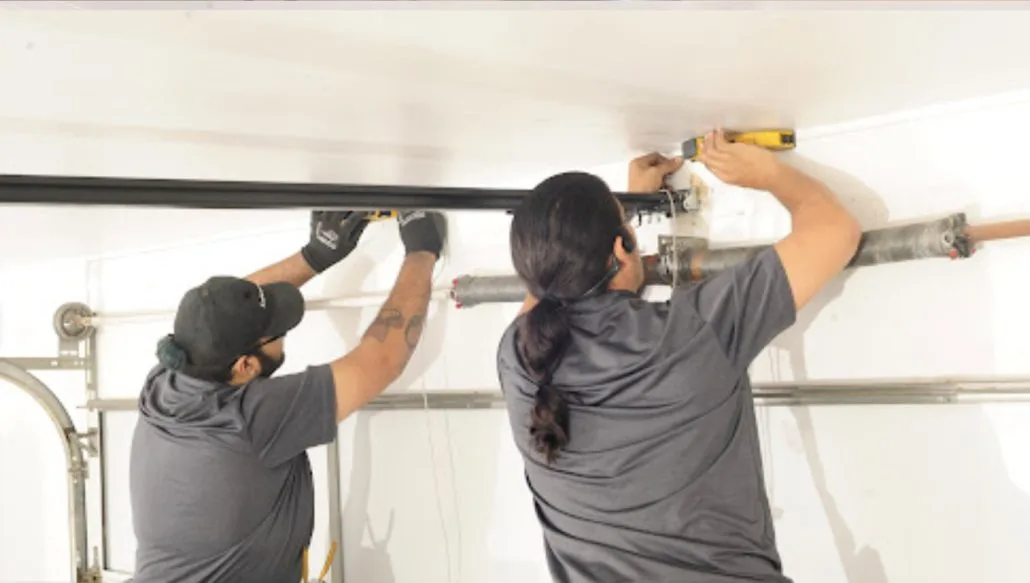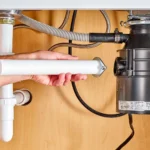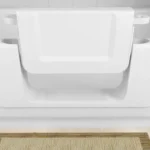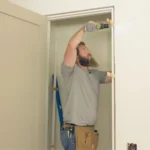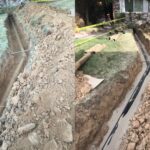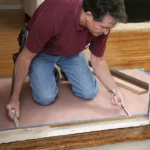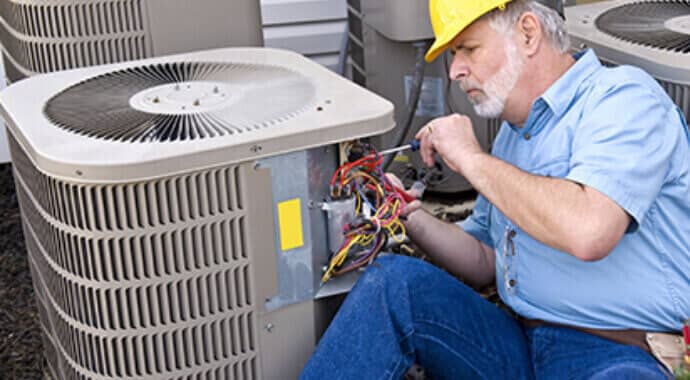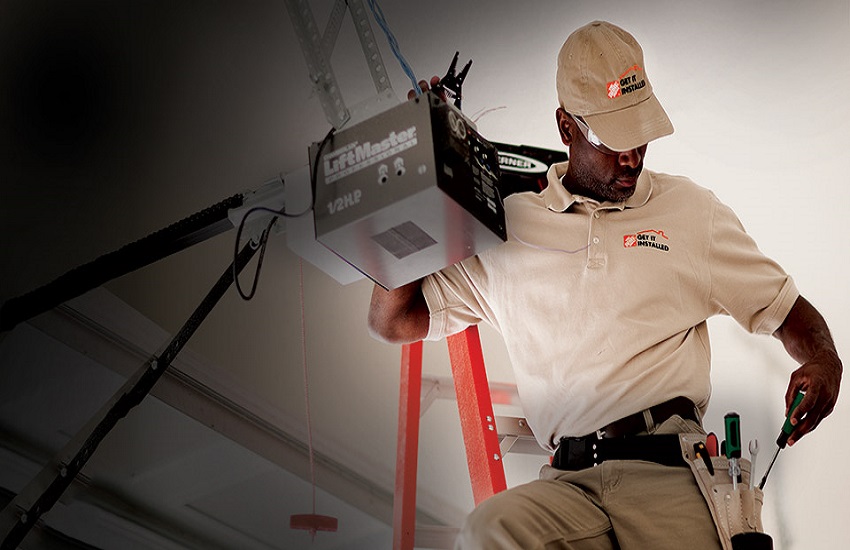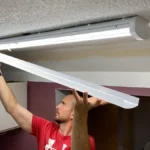If your garage door is stuck, suddenly not responding, or poses a safety risk, you likely need emergency garage door repair. These situations can disrupt your day, compromise your home’s security, and even be dangerous.
In this guide, we’ll walk through what counts as an emergency, common problems like garage doors not opening, off-track doors, or a garage door opener not working, and provide DIY troubleshooting tips along with advice on when to call a professional technician.
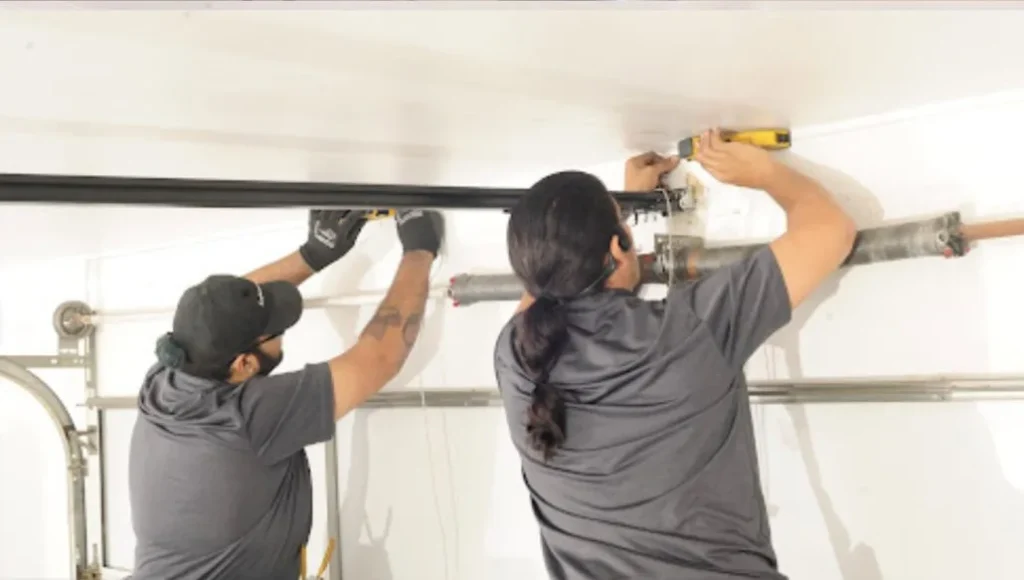
Content
What Counts as a Garage Door Emergency?
Not all emergency garage door repair are urgent, but certain conditions require immediate repair:
- The garage door is stuck halfway
- You hear a loud snap, indicating a garage door cable snapped
- The garage door opener is not working or not responding
- The door has come off its tracks
- A garage door keypad is not working, locking you out
These situations can present risks to your safety or home security and shouldn’t be ignored.
First Steps: Quick DIY Assessment
Before calling a technician, try these basic troubleshooting steps:
- Check the power to your opener unit
- Replace batteries in your remote or keypad
- Pull the garage door emergency release handle and test manual operation
- Inspect the emergency garage door repair sensor for misalignment or dirt
- Reset the garage door opener by unplugging and reconnecting the power
These quick fixes can sometimes resolve the issue immediately, especially if it’s related to power or sensor interference.
Common Emergency Garage Door Problems and How to Handle Them
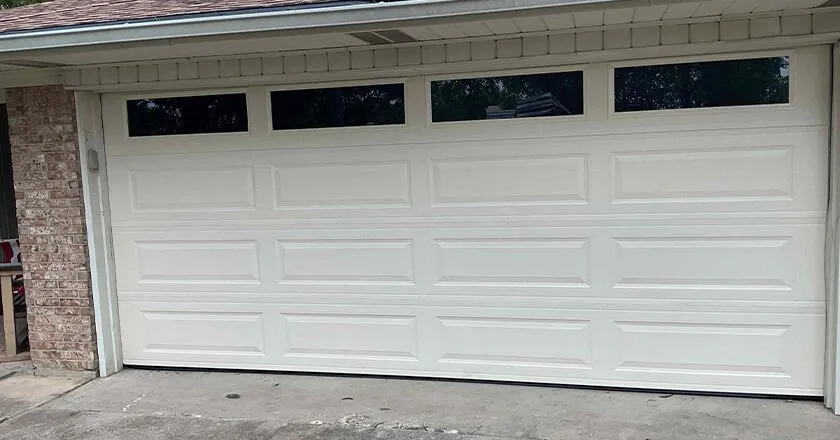
1. Garage Door Won’t Open or Close
This is the most common emergency. If your garage door won’t respond to the remote, possible causes include:
- Dead remote batteries
- Misaligned or blocked sensors
- Broken garage door springs
- Malfunctioning opener motor
DIY Tip:
Clean the sensors and change the remote battery. If the garage door is not opening after that, it’s time to inspect the opener or springs.
2. Garage Door Stuck Closed
If your garage door is stuck closed, the tracks may be blocked, or springs and cables might be broken.
DIY Tip:
Disconnect the opener using the emergency release handle and see if the door can be lifted manually. If not, the springs or cables may have failed.
3. Garage Door Off Track
An off-track garage door is dangerous. This can happen if the door was hit or forced.
Signs:
- Crooked or slanted door
- Grinding noise
- Visible track gaps or derailment
DIY Tip:
Do not try to force the door. Do not attempt to lift or realign it. An off-track garage door should always be handled by a professional.
4. Garage Door Spring Repair
A broken spring will make your door extremely heavy or immovable. You may hear a loud “bang” when it snaps.
Warning Signs:
- The garage door jerks when opening
- You see a visible break in the spring
- The door lifts unevenly or not at all
DIY Tip:
Do not try to repair garage door springs yourself. These are under high tension and can cause serious injury.
5. Garage Door Opener Hums but Doesn’t Move
When the garage door opener is not working but makes noise, the issue might be with the chain, drive gear, or a disconnected motor arm.
DIY Tip:
Check for loose connections or stripped gears. Reset the system if possible. If the problem persists, seek professional help.
6. Garage Door Keypad Not Working
A garage door keypad not working can lock you out unexpectedly.
DIY Tip:
Check the battery and try reprogramming it. If this fails, test the connection with your opener. If the keypad still doesn’t work, it may need replacing.
7. Garage Door Making Noise
Unusual grinding, rattling, or squeaking can point to:
- Loose hardware
- Worn-out rollers
- Dry or dirty moving parts
DIY Tip:
Lubricate the rollers and hinges with a garage door-safe lubricant. Tighten any loose screws or bolts. Persistent noise may signal deeper mechanical issues.
Tools You Might Need for Emergency Fixes
- Flashlight
- Screwdrivers
- Pliers
- Silicone-based lubricant
- Stepladder
- Electrical tester
These tools can assist with basic emergency garage door repair troubleshooting, but for mechanical failures like garage door spring repair or realignment, professional service is best.
When to Call a Professional Garage Door Technician
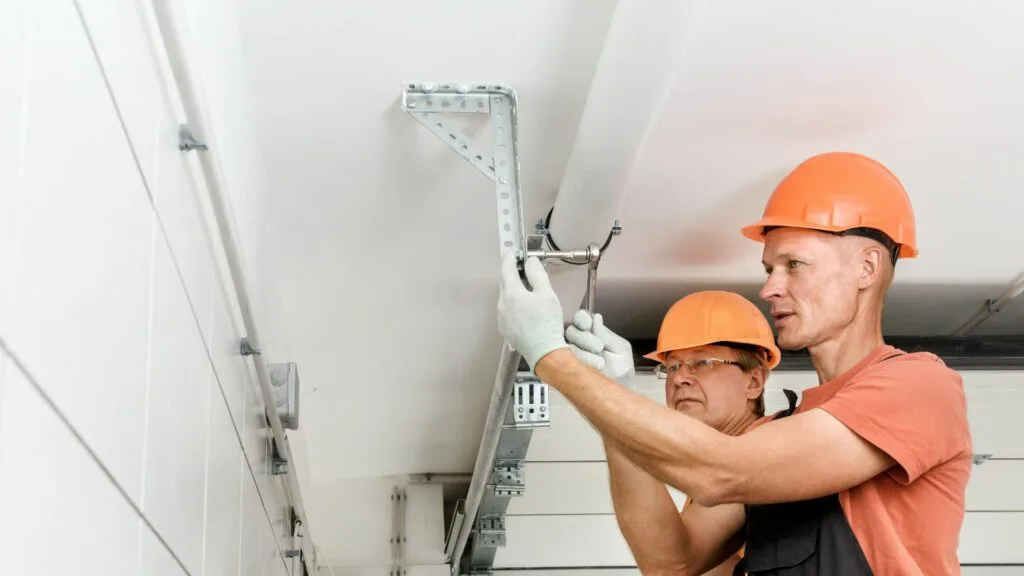
Some situations demand trained expertise:
- Garage door spring repair
- A garage door off track or hanging unevenly
- A garage door cable snapped
- A door that won’t respond after all troubleshooting steps
- If the garage door opener is not working and there’s no visible cause
Professionals have the tools and training to emergency garage door repair the issue without causing additional damage or injury.
Prevent Future Emergencies with Regular Maintenance
Avoid sudden breakdowns by performing these routine checks:
- Lubricate springs, rollers, and hinges every 6 months
- Inspect cables for wear
- Test the auto-reverse feature and sensors
- Ensure tracks are clean and aligned
- Schedule a professional tune-up once a year
Routine maintenance extends the life of your garage door system and helps prevent costly emergency garage door repairs.
Conclusion: Be Prepared for Garage Door Emergencies
When faced with an emergency garage door repair, acting quickly and smartly is key. From a garage door not opening to a cable snapped, knowing the warning signs and how to use the emergency garage door release handle can make a big difference.
Start with basic troubleshooting, but don’t hesitate to call in a technician when the issue involves springs, cables, or track misalignment. Prioritize safety and schedule preventive maintenance to keep your garage door operating reliably.
FAQs
What should I do if my garage door is stuck and won’t open?
First, check the power, remote batteries, and safety sensors. If those are fine, pull the emergency release handle and try opening the door manually.
Is it safe to fix a broken garage door spring myself?
No, broken garage door springs are dangerous to repair without proper tools and training. Always call a professional technician for spring replacement.

Elena Mohr is a dedicated home blogger who has been blogging for over six years. She covers everything home related. Elena also loves writing posts about her travels to Europe with her husband and two children.
